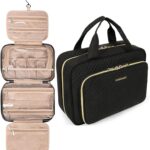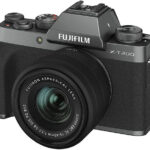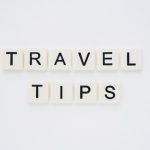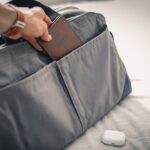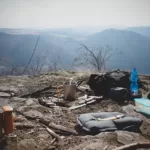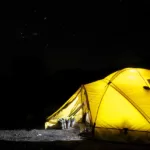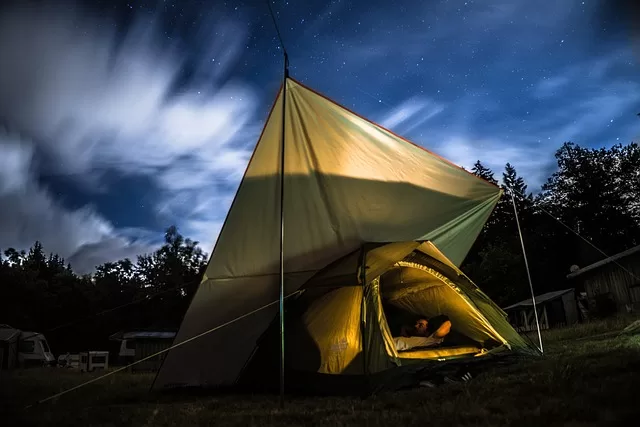If you’re an avid camper or just looking to try it out for the first time, having the right camping gear and equipment is crucial for a successful and enjoyable trip. Without these items, your camping is as good as non-existent. While some of these items like tents, shelter, camping cooking gear, and sleeping bags and pads are essential for your sustenance and safety, the entire trip can get ruined without them, there are also optional items that you need to make yourself even more comfortable.
We all know that camping is a great way to connect with nature and get away from the hustle and bustle of everyday life. And that being outdoors can do wonders for your mental and physical health, and it’s an opportunity to spend quality time with friends and family. So don’t ruin this opportunity by forgetting to pack the right camping gear and equipment for the trip.
Essential Camping Gear
These are items that without them then your camping trip might not happen. You need these items to survive the elements and the entire trip. They are not just necessary for a safe and comfortable camping trip but are what make the experience worth having in the first place. They include items like camping tents and shelters, sleeping bag, as well as camping stoves, and cooking gear. It is important to carefully outline these items in your checklist and get them all set and packed before the trip.
Tent
To choose the right tent, consider the size you need based on the number of people who will be using it. A two-person tent is suitable for one or two people, while a four-person tent is suitable for a small group. Gazebos might take a much larger crowd. Camping tents and shelters come in different types depending on the size, the nature, or the kind of camping. Each type has its own benefits and drawbacks, so consider your needs and preferences when making a selection. If you are wondering how to choose the right one, features to consider when choosing a tent include the materials used, the ventilation system, and the ease of set-up.
Sleeping Bag
The warmth rating of a sleeping bag is an important factor to consider, especially if you will be camping in colder temperatures. A sleeping bag with a lower rating is suitable for warmer temperatures, while a higher rating is suitable for colder temperatures. The materials used in a sleeping bag can also affect its warmth and durability.
Synthetic materials are generally less expensive and more durable, while down is lighter and more compressible but more expensive. The shape of a sleeping bag can also affect its comfort and warmth. Mummy-shaped sleeping bags are designed to be more thermally efficient, while rectangular sleeping bags offer more room to move around. Check out the best camping sleeping bags and pads here.
Sleeping Pad
The insulation of a sleeping pad is important for keeping you warm while you sleep. Self-inflating pads provide good insulation and are easy to use, while foam pads are less expensive but not as comfortable. Comfort is also an important factor to consider when choosing a sleeping pad. Look for a pad with a good balance of firmness and softness. Durability is also important, especially if you will be using the pad frequently or in rugged conditions. Look for a pad with a high denier rating, which indicates its strength and resistance to wear and tear. Here are a variety of camping cots and air mattresses to choose from.
Backpack
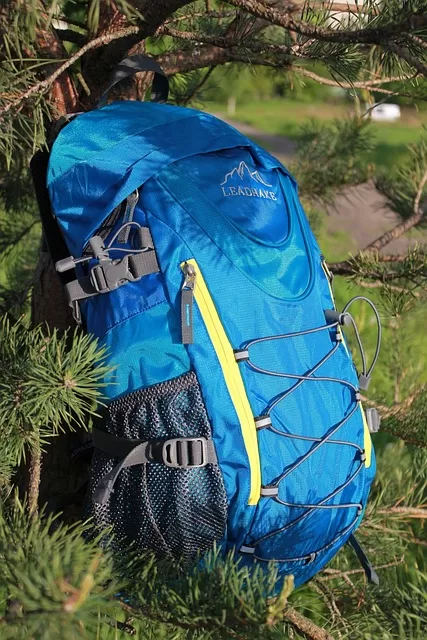
The capacity of a backpack is an important factor to consider, especially if you will be carrying a lot of gear. Look for a pack with enough space to hold all of your essentials, including a tent, sleeping bag, cooking equipment, and clothes. The fit of a backpack is also important. A pack that fits well will be more comfortable to carry and less likely to cause strain or discomfort. Look for a pack with adjustable shoulder straps and a hip belt to help distribute the weight evenly. Features to consider when choosing a backpack include the type of closure (e.g. zipper or roll-top), the number of pockets, and the materials used.
Cooking Equipment
Camping stove and cooking gear are some of the essential items to pack for any camping trip, except you have made provisions for feeding some other way. Stove options include canister stoves, liquid fuel stoves, and wood-burning stoves. Canister stoves are easy to use and lightweight but can be expensive to operate over time. Liquid fuel stoves are more versatile but require more maintenance. Wood-burning stoves are the most environmentally friendly option but can be more difficult to use.
Utensils to consider for cooking include a pot or pan for boiling water, a spatula or spoon for stirring, and a knife for chopping. Cookware options include pots and pans made from materials such as aluminum, stainless steel, or titanium. Aluminum is lightweight and inexpensive, but not as durable as other options. Stainless steel is more durable but heavier. Titanium is the most expensive option but is also the lightest and most durable.
Optional But Useful Camping Gear
These include items that if you forget to pack, might not entirely ruin or make camping impossible but may go a long way to inconvenience you and take comfort and ease out of the experience, especially as situations may always arise where you may need them. So while these items are not essentials, they are important and necessary to bring along for every camping trip.
Headlamp or Flashlight
A headlamp or flashlight is essential for camping because it provides light when it’s dark outside. When choosing a headlamp or flashlight, consider the brightness, battery life, and durability. A brighter light will be more useful for tasks that require a lot of light, such as setting up a tent or cooking. Longer battery life is also important, especially if you will be camping for multiple days. Durability is also important when choosing your camping lighting and lanterns because you want a light that will last through rough conditions and not break easily.
First Aid Kit
A first aid kit is an essential item to bring on any camping trip. It should include basic items such as bandages, gauze, adhesive tape, antibiotic ointment, and over-the-counter pain medication. It’s also a good idea to include a few extra items such as a thermometer, tweezers, and scissors in your camping first aid and emergency kit.
Multi-Tool or Knife
A multi-tool or knife can be extremely useful for various tasks while camping, such as cutting rope, opening cans, and preparing food. Look for a multi-tool or knife with a variety of functions and a durable build.
Insect Repellent
Insects can be a nuisance while camping, so it’s a good idea to bring insect repellent to keep them at bay. There are natural and chemical options available. Natural repellents often contain essential oils, while chemical repellents contain active ingredients such as DEET. Choose the option that works best for you and be sure to follow the instructions on the label.
Water Filtration System
A water filtration system is essential for camping, especially if you will be camping in areas where the water may not be safe to drink. There are several types of water filtration systems available, including pump filters, gravity filters, and straw filters. Each type has its own advantages and disadvantages, so choose the one that best suits your needs. It’s important to regularly maintain and replace the filters in your water filtration system to ensure it is effective in removing contaminants from the water. Check out the best camping water bottles and hydration packs here.
Camping Gear for Specific Activities
If you are hoping to engage in specific fun camping activities like hiking, stargazing, fishing, or any kind of fun specific to your campsite, it would be great to pack some of these camping gear and equipment to make participating in those fun a reality, which of course you should.
Hiking Gear
There are some sets of gear that will help make hiking easy and fun. When you’re out on the trails, it’s important to have a map and compass to help you navigate and stay on track. Trekking poles can also be helpful for added stability and support on uneven terrain. Don’t forget to bring a camping water bottle and hydration system to keep yourself hydrated and water safe while on the trail. Of course, when it comes to clothing, the right things would be shorts, leggings, and trekking boots.
Fishing Gear
If you’re planning on spending some time by the water and incorporating fishing on the list of crazy things to do while camping with friends, be sure to bring along your fishing gear and tackle box containing all those items like a fishing rod, reel, and lure. These are essential for catching fish, and it’s always a good idea to come prepared with the right gear.
Campfire Cooking Gear
A fire starter is essential for getting your campfire going, and a grill is perfect for cooking up burgers, hot dogs, and other tasty treats. Don’t forget to bring along some campfire cookware, like pots and pans, to make it easier to prepare meals over the fire.
Stargazing Equipment
If you’re planning on looking up at the stars, be sure to bring a telescope to get a closer look. A star chart can help you identify the constellations, and a red flashlight is a must-have to preserve your night vision.
Tips for choosing and caring for camping gear
When choosing camping gear, it’s important to consider factors such as your needs, preferences, and budget. Caring for your gear involves cleaning and storing it properly to ensure that it remains in good condition and continues to function properly. Following these tips will help you make the most of your camping experience and ensure that you have the right gear for your needs. However, there are other things to do like:
Research and Read Reviews Before Purchasing
It’s important to do your homework before buying camping gear. Look for reviews from other campers, compare prices and features, and consider your own needs and preferences. This will help you make an informed decision and choose the best gear for your needs.
Invest in High-Quality Gear that Will Last
While it may be tempting to go for the cheapest option, investing in high-quality gear can save you money in the long run. Quality gear is less likely to break or wear out, and it will provide you with a more comfortable and enjoyable camping experience.
Test Out Gear Before Going on a Camping Trip
Make sure to test out your gear before you head out on a camping trip. This will give you an opportunity to get familiar with how everything works and ensure that everything is in good working order.
Clean and Properly Store Your Gear After Each Trip
Proper care of your gear is essential for maintaining its quality and longevity. After each trip, clean and dry your gear thoroughly and store it in a dry, protected place. This will help prevent damage and extend the life of your gear.
Frequently Asked Questions on Camping Gear and Equipment
Here are some of the questions people frequently ask about camping gear and equipment and tier simple answers.
What are the Essential Pieces of Camping Gear and Equipment?
Some essential pieces of camping gear and equipment include a tent, sleeping bag, and sleeping pad, as well as camping backpacks and bags. Other items that are important to carry along for a better experience also include a water bottle, flashlight or headlamp, and first aid kit. These items will help you stay safe, comfortable, and organized on your camping trip.
What Should I Look for When Choosing a Tent for Camping?
When choosing a tent, consider the size and capacity, materials and durability, weight and portability, and the climate and environment where you will be using the tent. It’s also a good idea to read reviews on the site about the products or where it is an offline purchase you should ask friends or family members for recommendations.
How do I Choose the Right Sleeping Bag for my Camping Trip?
To choose the right sleeping bag, consider the temperature rating and insulation type, size and shape, and weight and packability. You’ll want to pick a sleeping bag that is appropriate for the weather conditions you’ll be experiencing and that is comfortable for you to sleep in.
What are the Best Camping Stoves for Cooking on a Trip?
Some good camping stoves for cooking on a trip include canister stoves, alcohol stoves, wood-burning stoves, and propane stoves. Each type has its own advantages and disadvantages, so it’s a good idea to research and compare a few different options before making a decision.
What are Some Important Tips for Maintaining and Caring for my Camping Gear and Equipment?
To maintain and care for your camping gear and equipment, be sure to clean and dry it thoroughly after each use, store it in a dry place, and repair or replace damaged items as needed. It’s also a good idea to regularly inspect and maintain your gear to ensure it is in good working order. This will help extend the life of your gear and ensure that it is always ready for your next camping trip.
Conclusion
Camping can be a fun and rewarding experience when you have the right gear and equipment. Some camping gear and equipment are essential and without them, your camping trip can never be a success others are optional but having them with you will go a long way to provide comfort and add a touch of luxury to your trip. Most of these gear are easy to find on online shops like Amazon or walk-in shops and malls in your neighborhood.
It is important to properly choose and care for your gear to ensure a successful and comfortable trip. This includes selecting items that are appropriate for the climate and terrain you will be camping in, as well as properly maintaining and storing your gear to ensure it is in good working condition for future trips. With the right camping gear and equipment, you can fully enjoy all that nature has to offer and create lasting memories.





